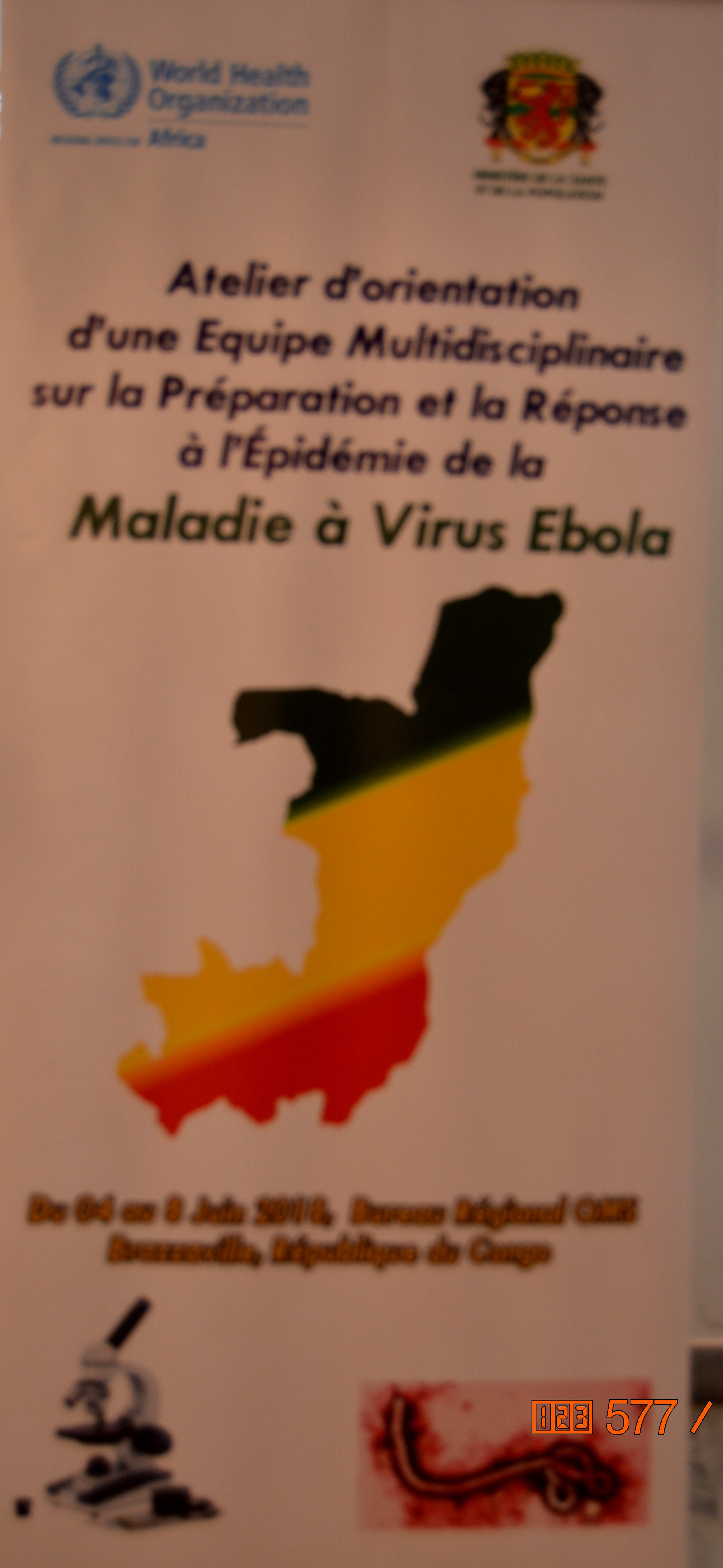To address the emerging threat of antimicrobial resistance (AMR) and its devastating consequences, the World Health Organization (WHO) Regional Office for Africa hosted a Consultative Experts’ Meeting on Combating Antimicrobial Resistance in the African Region from 6 to 8 May 2015 in Brazzaville, Congo.
ABOUT THE MEETING:
Brazzaville, 8 May 2015 – The African Region is facing an increasing risk of antimicrobial resistance (AMR) that threatens the effective prevention and treatment of an ever-increasing range of infections caused by bacteria, parasites, viruses and fungi. AMR and its spread will compromise health security in the Region as many standard medical treatments will fail or turn into high-risk procedures causing prolonged illnesses, high health care expenditures, and greater risks of death.
The AMR threat is hampering hard-won gains in health-related Millennium Development Goals (MDGs) and the sustainability of public health response to many communicable diseases such as cholera, typhoid, tuberculosis, malaria, meningitis, pneumonia, gonorrhoea and AIDS.
To address the emerging threat of AMR and its devastating consequences, the World Health Organization (WHO) Regional Office for Africa is hosting a Consultative Experts’ Meeting on Combating Antimicrobial Resistance in the African Region from 6 to 8 May 2015 in Brazzaville, Congo.
The meeting opened with a critical message from Dr Matshidiso Moeti, WHO Regional Director for Africa that was delivered on her behalf by Dr Joseph Cabore, Director of Programme Management. Dr Moeti highlighted that “the consultation is of utmost importance and is taking place at a time when there is a global consensus to commit and initiate actions for combating antimicrobial resistance.
“The fight against antimicrobial resistance requires concerted efforts, multifaceted interventions and multidisciplinary approaches to increase the awareness of policy makers, health professionals, and the general public about its negative implications.”
Multiple factors contribute to the growing problem of AMR in the Region. These include the inappropriate prescribing, dispensing, and indiscriminate use of antimicrobial medication in humans as well as veterinary and agriculture settings.
Weak medicines regulatory capacity remains a significant gap in many African countries and allows for substandard/spurious/falsely-labelled/falsified/counterfeit antimicrobials to enter the supply chain and contribute to treatment failures and the emergence and spread of AMR.
Other factors that drive AMR and its spread include poor infection control practices, inadequate sanitary conditions, and inappropriate food production and handling practices. Equally important is Member States’ capacity to collect reliable information on antimicrobial consumption and AMR and establish information sharing mechanisms between networks of laboratories and health professionals to address these concerns.
In May 2014, the 67th World Health Assembly (WHA) expressed the growing concern of AMR and urged governments to strengthen national action and international collaboration. The resulting resolution requested that WHO develop a draft global action plan to combat AMR for approval by the WHA in 2015.
In light of the ongoing discussions on AMR, Member States in the WHO African Region need to prioritize key interventions to ensure quality and supply of antimicrobial medicines and the development of National Essential Medicines Lists and Standard Treatment Guidelines to promote their rational use. They also need to monitor antimicrobial consumption and strengthen their capacity for AMR surveillance.
The group of African experts will identify a set of priority interventions that will guide countries in the Region to develop and update their national plans and stimulate inter-country collaboration for sharing of information and experiences and tackling AMR as a collective and regional health threat.
The meeting brought together 40 experts from the ministries of health, academia, laboratories, food safety, medicines and diagnostics, public health and infectious diseases of 17 countries from the WHO African Region. National Professional Officers on Essential Medicines (EDM/NPOs) from WHO Country Offices in 15 countries, Inter-country Support Teams, WHO staff from the Health Systems Strengthening (HSS/AFRO) and Health Security and Emergency (HSE/AFRO) Clusters, Essential Medicines and Health Products (EMP/HQ) and Antimicrobial Resistance (PED/HQ), WHO/EURO as well as the Norwegian Public Health Institute were also in attendance.
Key partners include the African Federation of Public Health Associations, African Society of Medicine Laboratory, and Ecumenical Pharmaceutical Network. The meeting was made possible thanks to the generous support of the EC/ACP/WHO/Renewed Partnership on strengthening pharmaceutical systems for improving access to essential medicines in Africa.
_______________________________________________
For more information, please contact:
Technical contacts:
Dr Delanyo Tsidi Dovlo; Tel: +472 413 9388; Email: dovlod [at] who.int (dovlod[at]who[dot]int)
Dr Ossy M.J. Kasilo; Tel: +472 413 9268; Email: kasiloo [at] who.int (kasiloo[at]who[dot]int)
Dr Yahaya Ahmed Ali; Tel: +472 413 9248; Email: aliahmedy [at] who.int (aliahmedy[at]who[dot]int)
Communications contacts:
Ms Flavienne Issembe; Tel: +472 413 9352; Email: issembef [at] who.int (issembef[at]who[dot]int)
Dr Cory Couillard; Tel: + 472 413 9995; Email: couillardc [at] who.int (couillardc[at]who[dot]int)
 Formation des membres de l’équipe multidisciplinaire sur la Préparation et la Réponse à l’épidémie de la Maladie à Virus Ebola de la République du Congo.aura lieu du 04 au 08 juin 2018 à Brazzaville au bureau régional, République du Congo, afin de mieux faciliter l’appui technique et administratif. L'objectif général est de former les participants sur les principales interventions pour se préparer à faire face et contrôler efficacement une éventuelle épidémie de la Maladie à Virus Ebola (MVE) en République du Congo.
Formation des membres de l’équipe multidisciplinaire sur la Préparation et la Réponse à l’épidémie de la Maladie à Virus Ebola de la République du Congo.aura lieu du 04 au 08 juin 2018 à Brazzaville au bureau régional, République du Congo, afin de mieux faciliter l’appui technique et administratif. L'objectif général est de former les participants sur les principales interventions pour se préparer à faire face et contrôler efficacement une éventuelle épidémie de la Maladie à Virus Ebola (MVE) en République du Congo.